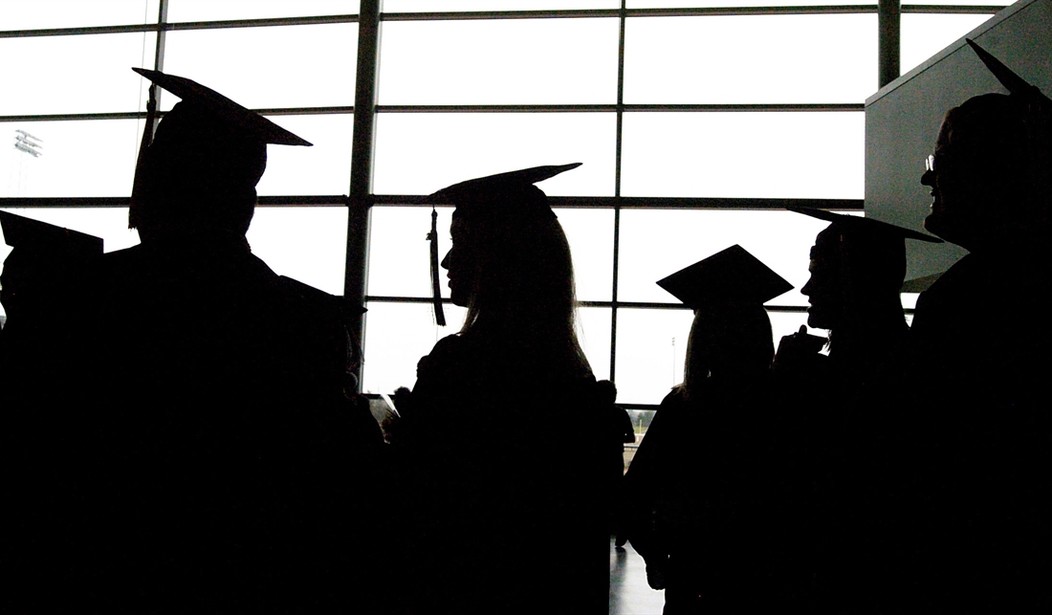When President Biden rolled out his budget request for the 2022 fiscal year, conservatives weren't surprised that it included a laundry list of leftist malarkey. But beyond the tax and spend priorities lie a fundamental betrayal of the claimed commitment to equity espoused by the Biden Administration—especially in his budget request for the U.S. Department of Education.
For anyone who's recently graduated or follows the troubling stories coming out of America's institutions of higher learning, it's clear that more money isn't the solution. The cost to attend college and the resulting student loan debt continue to skyrocket despite years of funding increases and federal "help" that can't save students with unmarketable degrees.
Yet Biden is still trying to throw money at education. In his budget proposal, the higher education section of the request claims that:
To lower the financial barriers low- and middle-income students face in pursuing education beyond high school, the discretionary request increases the maximum Pell Grant by $400, the largest one-time increase since 2009. This investment is one piece of a more comprehensive proposal to double the maximum Pell Grant. The discretionary request would also ensure “DREAMers,” students who came to the United States as children and are Deferred Action for Childhood Arrivals recipients, are eligible for Pell Grants if they meet the standard requirements for that aid.
The $400 increase in the cap on Pell Grants might not sound that drastic at first, but this would amount to a $3 billion increase in federal (read: taxpayer) funding to the Pell Grant program. That $3 billion increase is just a sliver of the Biden Administration's requested $102.8 billion in funding for the Department of Education that is 41% (or $29.8 billion) more than its enacted 2021 budget.
Biden's request is based on the widely-held fallacy that more pell grants and other federal student aid lowers the cost of attaining a degree. It may appear to an individual student whose fees are being subsidized by taxpayers that their cost to attend college is lower. But the money used to fund the Pell Grant program and lend federal student loans doesn't magically appear. It is money taken from taxpayers, many of whom never attend college. It is the definition of inequitable to continue forcing Americans who don't attend college to continue funding "freebie" Pell Grants for those who do.
Recommended
Named for 3rd U.S. Secretary of Education Bill Bennett, the Bennett Hypothesis posits that for every dollar of government aid put toward a student's education, the cost of that education will also increase. Bennett wrote in the New York Times in 1987 to warn that "if anything, increases in financial aid in recent years have enabled colleges and universities blithely to raise their tuitions, confident that Federal loan subsidies would help cushion the increase."
Studies since then have shown Bennet's thinking to be correct. A survey of decades worth of data since the Department of Education began scaling up aid for students found "federal student aid increases university tuition rates, perhaps by as much as 60 cents on the dollar."
And a report from members of the New York Federal Reserve Bank also documented the rising attendance costs that accompany hikes in federal student aid and found an additional angle of inequity in that certain schools benefit more from increased federal aid to students:
"The Fed report shows that the schools benefiting the most from the tuition hikes associated with federal aid are the elite, selective private institutions. The results confirm what I have been saying with increasing frequency: federal financial aid programs are leading to greater educational inequality in America, where the cognitively blessed and economically advantaged have ever growing superiority of educational opportunity, able to attend the 'great' private schools as opposed to merely adequate public institutions. Few of the top 50 on the US News or Forbes rankings these days are public universities."
Rather than making attending college more affordable or America's education system more equitable, Biden's attempt to throw more federal dollars into student aid will make the cost of earning a degree even higher, saddle Americans with taxes to fund others' educational pursuits, and give elite institutions the greatest benefit.

























Join the conversation as a VIP Member